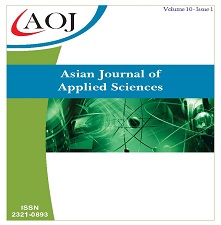Development of Learning by doing Governance Model Industry based on Vocational Middle School in Makassar
DOI:
https://doi.org/10.24203/ajas.v10i1.6850Keywords:
Learning by Doing Governance Model, Vocational High School, and IndustryAbstract
Vocational High School (SMK) is one of the education systems in Indonesia which is expected to be able to deliver the young generation to have knowledge, skills and competencies. One way to do this is by implementing Industrial Work Practices (prakerin). The development of the IB-LeDo model is one of the more systematic, targeted and measurable models of prakerin implementation. The objectives of the study were to find out: 1) An overview of the current IB-LeDo governance model in Vocational Schools, 2) Development of a valid, practical and attractive IB-LeDo governance model, and 3) Knowing the effectiveness of the model. This study uses Research and Development research and ADDIE models. This research was conducted for students who carry out internship in Makassar. The research subjects were 15 people. The data analysis model used is; preliminary stage, development stage, and evaluation stage. The analysis is assessed by experts including; validity, practicality The results of research and development can be concluded, among others: 1) the IB-LeDo governance model has improved through the concept of maximum management, increased parental attention, increased mentors/supervisors, systematic and measurable prakerin assessment methods and increased character values, 2) The developed IB-LeDo model meets the requirements of validity, practicality, and interest, and 3) The results of the effectiveness test show that there is a significant increase in knowledge and competence before and after participating in the internship., and attractiveness, as well as test effectiveness based on the results of the application of the model.
References
C. R. Finch and J. R. Crunkilton, Curriculum Development in Vocational and Technical Education. Planning, Content, and Implementation, 5th Ed. Boston, MA: Allyn and Bacon, 1999.
Direktoral Jenderal Pendidikan Vokasi, Rencana Strategis Direktorat Jenderal Pendidikan VOkasi Tahun 2020-2024. Jakarta: Direktoral Jenderal Pendidikan Vokasi, 2020. Accessed: Sep. 06, 2021. [Online]. Available: https://www.vokasi.kemdikbud.go.id/storage/document/July2021/xTNFJ7ifzGNjC8OFi9er.pdf
Kementerian Pendidikan dan Kebudayaan Indonesia, Rencana Strategis: Kementerian Pendidikan dan Kebudayaan 2020-2024. Jakarta: Kementerian Pendidikan dan Kebudayaan Indonesia, 2020. Accessed: Sep. 06, 2021. [Online]. Available: https://dikti.kemdikbud.go.id/wp-content/uploads/2020/10/RENSTRA-KEMENDIKBUD-full-version.pdf
Soenaryo and D. Supriadi, Sejarah pendidikan teknik dan kejuruan di Indonesia : membangun manusia produkif. Jakarta: Departemen Pendidikan Nasional, Direktorat Jenderal Pendidikan Dasar dan Menengah, Direktorat Pendidikan Menengah Kejuruan, 2002.
Singh, “Social and Cultural Aspects of Informal Sector Learning: Meeting the Goals of EFA,” in International Handbook of Education for the Changing World of Work: Bridging Academic and Vocational Learning, R. Maclean and D. Wilson, Eds. Dordrecht: Springer Netherlands, 2009, pp. 349–358. doi: 10.1007/978-1-4020-5281-1_23.
M. Pavlova, Technology and Vocational Education for Sustainable Development, 1st Ed. Netherlands: Springer Netherlands, 2009.
R. Maclean and D. Wilson, International Handbook of Education for the Changing World of Work. Netherlands: Springer Netherlands, 2009.
D. Wardiman, Pengembangan Sumber Daya Manusia: Melalui Sekolah Kejuruan (SMK). Jakarta: Jayakarta Agung Offset, 1998.
J. Maknun, “The Implementation of Generative Learning Model on Physics Lesson to Increase Mastery Concepts and Generic Science Skills of Vocational Students,” American Journal of Educational Research, vol. 3, no. 6, Art. no. 6, May 2015, doi: 10.12691/education-3-6-12.
A. Suharyanto, “Teori John Dewey dalam Psikologi Pendidikan,” DosenPsikologi.com, Feb. 06, 2019. https://dosenpsikologi.com/teori-john-dewey-dalam-psikologi-pendidikan (accessed Sep. 03, 2020).
H. Wiratama, Sejarah Pendidikan Teknik dan Kejuruan di Indonesia. Bandung: PT. Remaja Rosda Karya, 2002.
A. Yogaswara, “Kurikulum SMK Edisi tahun 2004 Bagian Pertama - Kurikulum SMK Panca Bhakti,” Kurikulum SMK Panca Bhakti, n.d. https://sites.google.com/site/kurikulumpabha/kurikulum-smk-edisi-tahun-2004-bagian-pertama (accessed Sep. 08, 2021).
W. R. Borg, M. D. Gall, and J. P. Gall, Educational Research: An Introduction, 8th Edition. New York: Pearson, 2007.
N. S. Sukmadinata, Metode Penelitian Pendidikan. Bandung: Remaja Rosdakarya, 2011.
Sugiyono, Metode Penelitian Kuantitatif Kualitatif dan R&D. Bandung: Alfabeta, 2010.
S. Akbar and H. Sriwiyana, Pengembangan Kurikulum dan Pembelajaran Ilmu Pengetahuan Sosial, 2nd Ed. Yogyakarta: Syaamil Cipta Media, 2011.
Hobri, Metodologi Penelitian Pe-ngembangan (Aplikasi pada Penelitian Pendidikan Matematika). Jember: Pena Salsabila, 2010.
Nurdin, “Model Pembelajaran Matematika yang Membutuhkan Kemampuan Metakognitif untuk Menguasai Bahan Ajar,” Universitas Negeri Surabaya, Surabaya, 2007.
Downloads
Published
How to Cite
Issue
Section
License
Copyright (c) 2022 Muhammad Nur Abdullah, Arifin Ahmad, Hamsu Abdul Gani

This work is licensed under a Creative Commons Attribution-NonCommercial 4.0 International License.
- Papers must be submitted on the understanding that they have not been published elsewhere (except in the form of an abstract or as part of a published lecture, review, or thesis) and are not currently under consideration by another journal published by any other publisher.
- It is also the authors responsibility to ensure that the articles emanating from a particular source are submitted with the necessary approval.
- The authors warrant that the paper is original and that he/she is the author of the paper, except for material that is clearly identified as to its original source, with permission notices from the copyright owners where required.
- The authors ensure that all the references carefully and they are accurate in the text as well as in the list of references (and vice versa).
- Authors retain copyright and grant the journal right of first publication with the work simultaneously licensed under a Attribution-NonCommercial 4.0 International that allows others to share the work with an acknowledgement of the work's authorship and initial publication in this journal.
- Authors are able to enter into separate, additional contractual arrangements for the non-exclusive distribution of the journal's published version of the work (e.g., post it to an institutional repository or publish it in a book), with an acknowledgement of its initial publication in this journal.
- Authors are permitted and encouraged to post their work online (e.g., in institutional repositories or on their website) prior to and during the submission process, as it can lead to productive exchanges, as well as earlier and greater citation of published work (See The Effect of Open Access).
- The journal/publisher is not responsible for subsequent uses of the work. It is the author's responsibility to bring an infringement action if so desired by the author.

